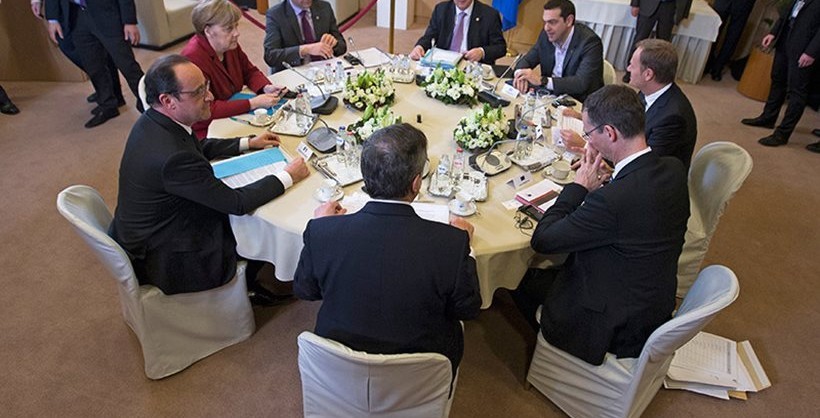After four months of intensive negotiations, the Radical Left Coalition (SYRIZA) government of Greece is orbiting towards a collision with its international creditors from the European Commission (EC), European Central Bank (ECB) and International Monetary Fund (IMF). SYRIZA’s Parliamentary Group convened on Tuesday with Prime Minister Alexis Tsipras sending the message that Greece has already submitted a proposal that could have been the basis for a sustainable and socially acceptable agreement. Instead of considering this, the creditors responded with a five-page document that ignored the preceding negotiations.
The Greek side regrets its lenders refusal to accept equivalent measures to ensure the sustainability of the Greek economy in an effort to deprive the government of its right to choose the course for Greece. “This insistence on a program of cuts that has failed and measures that cannot be accepted is not only wrong, it most likely serves political ends and a plan to humiliate not just the government but the people of Greece,” he said, while acknowledging the previous conservative New Democracy and socialist PASOK government’s efforts to set up a “minefield” so as to sabotage the current government of Greece at the expense of the Greek people.
“We knew that it would not be a walk in the park and that there would be no period of grace for us,” he said. “We threw ourselves into battle when we were up against a minefield set up by the previous government that wanted the left to be a ‘parenthesis’.” He pointed to the government’s efforts to end the memorandum regime and pledged that the next four years will be dedicated to dismantling this. “We have no room as a Parliament to accept an IMF-inspired program, and only the Greek government can decide about the distribution of taxes,” he said, underlining that the time has come for the oligarcy to pay and not the workers. Furthermore, he set the bar high stating that there can be no agreement without a debt resettlement.
He reiterated that the Greek side could not agree to a continuation of memorandum policies based on austerity and recession that have brought only problems to Greece. He noted that the government is nearing its fifth month in office and is taking measures to address the humanitarian crisis despite the difficulties and obstacles.
While Tsipras was making these statements, German Chancellor Angela Merkel was pledging to keep Greece in the euro zone. “I’m concentrating all of my energy on helping the three institutions find a solution with Greece,” she told reporters. “That’s what I see as my task. I want to do everything possible to keep Greece in the euro zone and these days I am devoting myself to this.” She pointed out that the decision for Greece could only be made at the Eurogroup and stressed that the main issue was not some “fiscal gap” in the estimates of the two sides but the points raised in December 2014 and whether the institutions believed that progress had been made in these points.





































